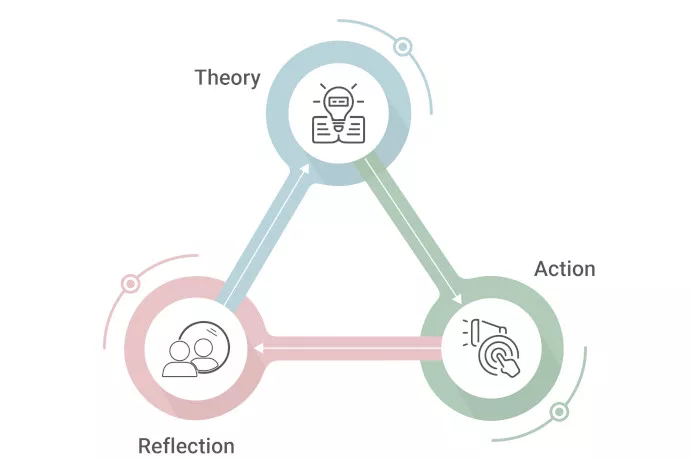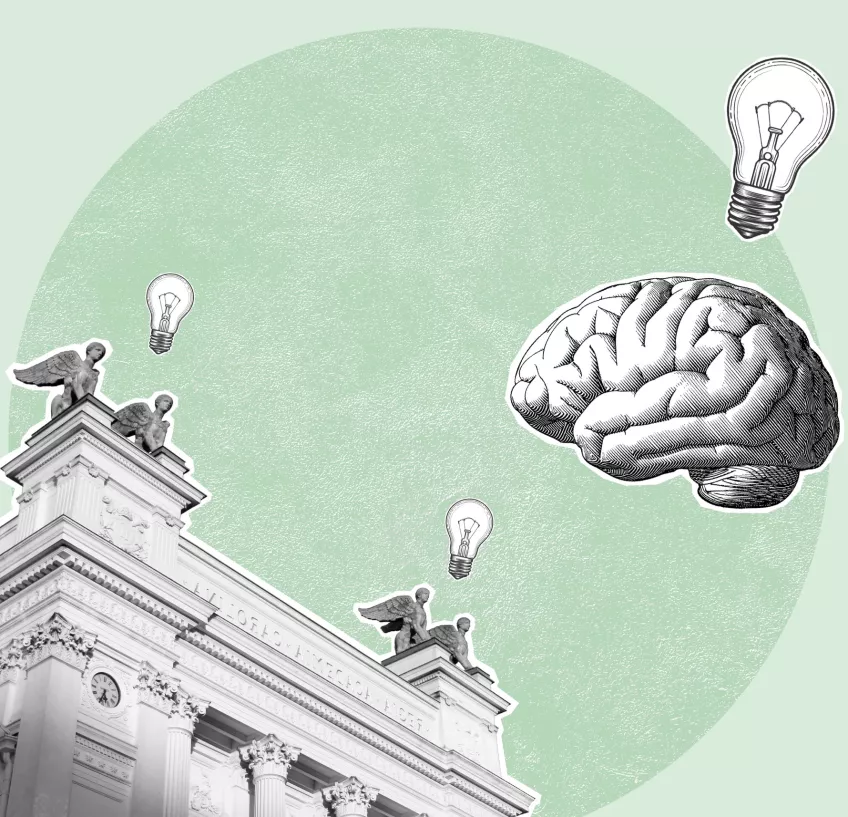The Sten K. Johnson Centre for Entrepreneurship pedagogical approach
An experiential learning process
Our entrepreneurial pedagogy involves a continuous interplay between Action, Theory, and Reflection in a cyclical manner. This experiential learning process ensures that entrepreneurship is not just taught but lived and internalised, fostering an environment where students are prepared to become the innovators and business leaders of tomorrow.
The pillars of our pedagogy
Action—Learning by Doing
Action is the beating heart of our pedagogy, emphasising the principle that deep learning stems from hands-on experience. In our programme and courses, our students take concrete steps towards actualizing their entrepreneurial visions by actively engaging in the new venture creation process and immersing themselves in a range of extracurricular activities. We organise field visits and collaborations with local businesses and actors to create a vibrant learning environment where theoretical knowledge meets real-world practice. Enhanced by invaluable insights from industry guest lecturers, entrepreneurs, and experts, students develop not only practical expertise but also interpersonal understanding that is vital for their entrepreneurial journey. Through these interactive experiences, our students harness their theoretical knowledge and apply it in tangible ways.
Theory—Entrepreneurial Knowledge
We believe that informed action is powerful. The theoretical component of our pedagogy provides students with foundational frameworks and tools to successfully navigate the entrepreneurial process. We ensure that our theoretical education is rooted in state-of-the-art entrepreneurship and entrepreneurship education research, much of which stems from our own researchers at the Centre, allowing students to understand their experiences in the context of established knowledge. This theoretical foundation ensures that when our students act, they do so with awareness of broader implications and the necessary tools to succeed, turning their experiences into profound learning opportunities.
Reflection—Making Sense of Actions
Reflection is an important pillar of our pedagogy, through which students analyse their actions informed by entrepreneurship theory and consolidate their learning experiences into a long-lasting knowledge repertoire. Students log entrepreneurial diary entries every three weeks to record and analyse their activities and underlying theories, continually enhancing their learning. This reflection process is not merely about looking back but also about looking forward—students evaluate and plan, developing an actionable understanding of how to approach future scenarios more effectively.
The reflective journey culminates in the meta-reflection report, where students synthesise their entire learning experience during the programme. This comprehensive reflection allows students to articulate their growth from a student perspective to an entrepreneurial one, showcasing how they have applied methodologies, tools, models, and approaches to real-world challenges, and pondering the societal and environmental responsibilities of their role as entrepreneurs.
Continuous feedback is also an essential part of our reflective process. Peers, advisors, and mentors provide insights, ensuring that reflection leads to personal development and improved practice.


